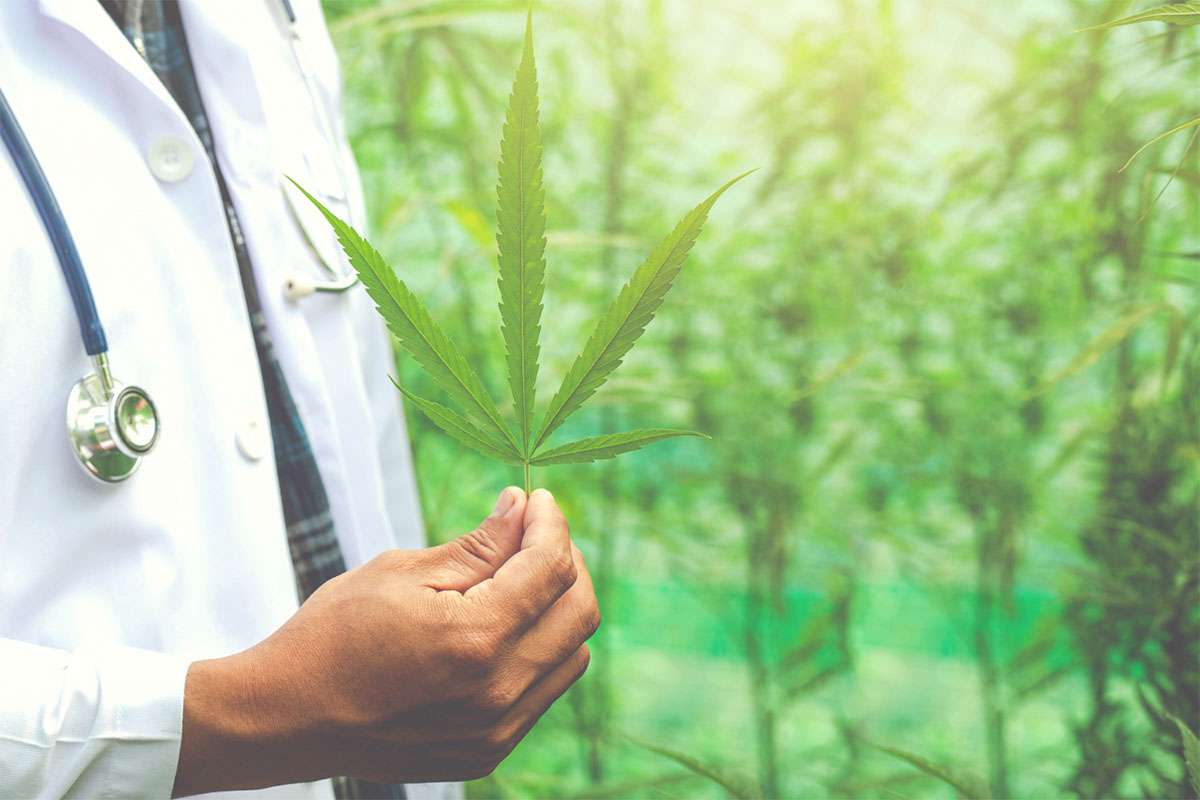Did you know that hemp oil is one of the most nutritious and beneficial products you can find on the market? It is obtained by pressing hemp seeds and is an excellent natural remedy for many ailments.
Hemp, or cannabis, is a plant that has gained worldwide fame over the years due to all the properties of the nutrients it contains in both the plant part and the seeds.
The seeds are rich, in particular, in Omega-3 and Omega-6. Omegas are essential fats that are indispensable for your daily needs and help you keep your body healthy and well since they are rich in anti-inflammatory and antioxidant properties.
In short, they are natural substances that, once discovered, you won’t be able to do without!
And you know what the good news is? That the contraindications of hemp oil are practically non-existent.
Moreover, it is an extremely versatile product because it can be used for external use as well as for food, in addition to your favourite dishes to supplement your diet and improve your lifestyle.
If you are still not fully familiar with the properties, benefits and possible contraindications of hemp oil, don’t worry. We decided to create this guide precisely to clarify everything you need to know about this powerful product.
CBD hemp properties
Hemp oil, different from CBD oil, is a natural and organic product in which a huge amount of nutrients are gathered. There are vitamins, minerals, proteins, soluble fibres, minerals and many more.
These we have mentioned are all equally important, but there is one component that stands out above the rest: linolenic acid, better known as Omega-3.
Omega-3 is an essential fat found in abundance within hemp seeds and its effectiveness is ensured by the presence of a portion of Omega-6. They are roughly in a 3:1 ratio and work precisely because they work in synergy.
How come hemp oil has so many properties? Precisely because its components are perfectly balanced to produce the maximum degree of benefit.
Its properties are:
- Anti-inflammatory;
- Antioxidant;
- Pain-relieving;
- Immunomodulatory;
- Gluten-free;
- Vegetarian and vegan.
Hemp oil is obtained by cold-pressing the raw seeds, a bit like olive oil when it is extracted from olives. This results in a product of the highest quality, without impurities and completely organic.
There is also a small trace of cannabinoids in it, but it is not as high as in CBD oil because the seeds contain a low percentage of them.
Benefits of hemp oil
As we have just seen, hemp oil is rich in both nutritional and healing properties. It is therefore able to maintain a healthy body or rebalance an organism suffering from some ailment.
Let’s look now at the main benefits of hemp oil:
- It gives relief from inflammation and pain, even chronic pain, it is therefore able to cure back pain such as arthritis;
- Helps cardiovascular health by lowering fats in the blood due to the presence of linolenic acid;
- Facilitates muscle relaxation and ensures joint mobility;
- Benefits the brain, protects it and reduces inflammation;
- Keeps the skin healthy, curing diseases such as acne, dermatitis, psoriasis, eczema and skin irritations in general;
- Limits allergic rashes;
- Reduces blood pressure and cholesterol levels;
- Relieves symptoms of PMS;
- Strengthens the immune system;
- Improves metabolism;
- Rebalances hormone levels;
- Calms anxiety, stress and depression.
We are therefore talking about an extremely adaptable product that is used as a complement to both a diet and skin care creams.
And you should also know that it does all this without being addictive, as is the case with traditional medicines. Hemp oil is in fact a natural remedy for all those who are not satisfied with eliminating the symptoms of an illness, but want to restore their bodies to their original state of health.
Contraindications of hemp oil
At the beginning, we also mentioned the contraindications of hemp oil, i.e. the possibility of unpleasant side effects.
In general, hemp oil is a fairly safe product. In fact, cannabinoids are only present in a small percentage, so there is no risk of running into the psychoactive effect.
On the other hand, however, even the most natural substances in the world can give some side effects in particularly sensitive or allergic individuals. Cannabidiol, although present in a small percentage, can cause some mild side effects.
First and foremost, dry mouth. This is a contraindication that has come up rarely and always in connection with a high dosage of CBD. However, it cannot be ruled out completely.
Another contraindication that could occur, again in connection with cannabidiol, is a feeling of tiredness, since we are talking about a relaxing substance.
A third side effect of CBD that emerged during research was an alteration of appetite. Some subjects felt hunger to a greater extent while others felt hunger to a lesser extent.
However, it should be specified that these side effects occurred mostly with high concentrations of CBD and often due to interaction with other drugs for the treatment of a disease. This is why scientists always recommend seeking advice from your doctor and starting with a low dosage.
How to use hemp oil
Hemp oil, being an extremely versatile product, lends itself to a wide range of uses depending on the result you wish to achieve.
Here is how to use hemp oil:
- Added to foods and drinks to stay healthy and prevent disease;
- Daily supplement to relax, lowering anxiety and tension accumulated during the day;
- Topically on an area of skin affected by a particular ailment, with a gentle massage to aid absorption;
- On the skin to treat a real disease such as acne;
- On the hair to promote its growth and strength, or directly on the scalp in the case of dandruff.
As far as dosage is concerned, scientists always recommend starting with a few drops a couple of times a day. Just as during research, it would be good to note down dosage and frequency, as well as the body’s response. If a dosage is well tolerated, it can be gradually increased until the symptoms to be treated disappear or at least alleviate.
To make sure you don’t make a mistake, it is important to always follow the directions on the packet, which have been provided in relation to the specific product you have purchased and are therefore tailored to its ingredients.
Hemp oil and nutrition
Hemp oil is a true superfood rich in nutrients with important beneficial properties for the body.
Let’s take a look at its nutritional properties:
- Essential fatty acids: an excellent source of essential fatty acids, Omega-3 and Omega-6, in an ideal ratio for metabolic functions, these fatty acids are important for heart, brain and immune system health;
- Vitamins: is rich in vitamin E, a powerful antioxidant that helps protect cells from free radical damage; also contains small amounts of B vitamins, such as vitamin B1 (thiamine) and vitamin B6 (pyridoxine);
- Minerals: contains important minerals such as magnesium, calcium, phosphorus and potassium;
- Other compounds: it also has other beneficial compounds, such as phytonutrients and terpenes, which may have anti-inflammatory and antioxidant effects.
In the food industry, hemp oil can be used in a variety of ways, including as a raw dressing for salads, vegetables, cereals, yoghurt or to prepare sauces and pesto, added to smoothies and shakes and used as an ingredient in cakes, biscuits, bread and other dishes.
Cannabis seed oil
Are hemp oil and cannabis seed oil the same thing? There are really many different products that can be derived from the cannabis plant. Before making a purchase, it is good that you know the terminology so that you can buy exactly what you need.
So that you don’t make a mistake, let’s now find out the most important information you need to know about this particular product.
Cannabis seed oil vs hemp oil
As the word itself implies, cannabis seed oil is extracted solely from the seeds of the plant, which are free of cannabinoids. And the same goes for hemp oil.
So, what is the difference between the two? It is very subtle, actually: when we speak of cannabis seed oil we are referring to any type of cannabis, whereas when we speak of hemp oil we are referring to a product derived from the cannabis sativa variety.
Cannabis seed oil and hemp oil contain many beneficial substances including fatty acids, minerals, protein and fibre. On the other hand, however, it is poorer in cannabinoids.
This is because cannabinoids are present in almost all parts of the plant except the seeds, which are rich in other substances.
The properties of cannabis seed oil
Cannabis seed oil, like hemp oil, is first and foremost nutritious. This means that it supplements the diet with essential fatty acids, vitamins and minerals.
After that, it also has antioxidant properties, useful in fighting free radicals and oxidative stress.
Finally, it can promote healthy skin, hair, heart and immune system. In fact, cannabis seed oil is especially used in the food sector, including as part of one’s diet, and in cosmetics.
Does it contain CBD and THC?
No, cannabis seed oil, often mistakenly confused with CBD oil, does not contain CBD or THC.
It is only extracted from the seeds of the cannabis plant, which are free of cannabinoids. There may be such minute traces of CBD in the final product as to be irrelevant.
Since it contains no cannabinoids, it does not have the effects associated with CBD or THC.
Contraindications of cannabis seed oil
In general, cannabis seed oil is well tolerated and has a low risk of side effects. Also because, as we said, it does not contain cannabinoids.
In some cases, high doses may cause diarrhoea, nausea, abdominal pain and lower blood pressure.
As far as pregnant or breast-feeding women are concerned, there are insufficient studies on safety, so it is best to consult a doctor before taking cannabis seed oil.
Side effects may occur in case of allergies to the seeds and if you are taking anticoagulants. Concerning the simultaneous intake of other medications or supplements, it is best to discuss this with your doctor.
Difference between hemp oil and CBD oil
And since we have just talked about the contraindications of hemp oil by mentioning CBD, let’s try to understand what the differences are between these two products:
- Hemp oil: is extracted from the seeds of the cannabis sativa plant, contains numerous nutrients but a low percentage of cannabinoids, i.e. both CBD and THC (the psychoactive principle);
- CBD oil: is produced by extracting the nutrients from the vegetal part of the plant, i.e. the leaves and flowers, which is richer in cannabinoids.
The difference between hemp oil and CBD oil is therefore in the composition. Each is composed of nutrients with different properties. For example, the plant part of hemp is not as rich in Omega as the seeds. On the contrary, however, it is rich in cannabinoids.
CBD oil, in fact, is sold with a CBD percentage ranging from 5%. It is therefore the cannabidiol that is the real reason why it is purchased. It should also be pointed out that in CBD oil, cannabidiol can be isolated or combined with the plant’s other nutrients as is the case with Full Spectrum and Broad Spectrum.
At this point, you have a complete picture of the benefits and contraindications of hemp oil and CBD oil. Visit our store now and discover the products we have designed for you, all natural and 100% safe.
 Contact us
Contact us 

